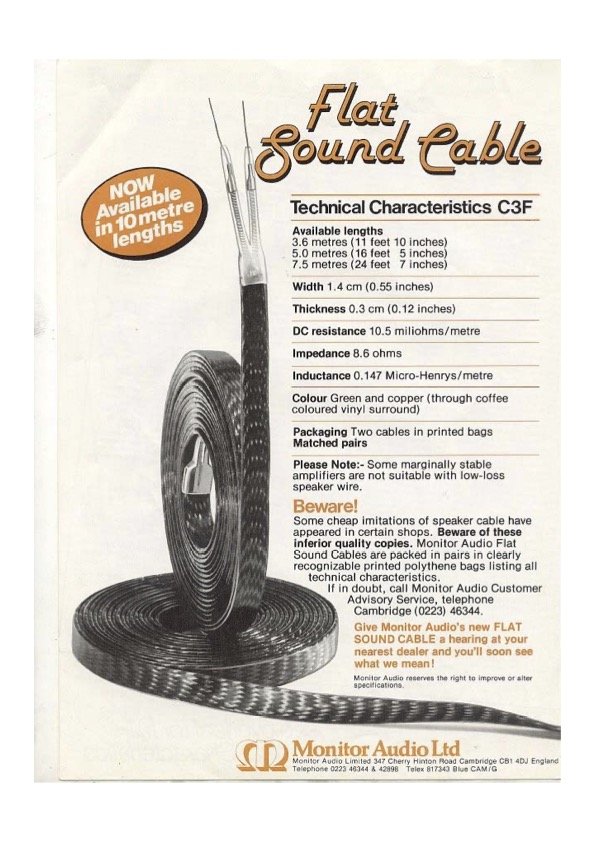The industry of high-end audio chronicles designers' passion for emotionally-engaging sound, the pursuit of engineering perfection and the love of music. We are an unusual industry, comprised of a few relatively large companies, and many small companies. Many high-end audio manufacturers start as one person efforts, literally in their garages.
Putting to one side the Veblen good phenomenon a lot of components in the industry are expensive. Are they expensive because they use expensive parts? Often this is certainly the case and provably so. Are finished audio components expensive sometimes because extremely small production volume requires manufacturers to pay a lot for the component parts with little to no economies of scale?
Most of us audiophiles love the concept of a passionate "mad" scientist being driven by his love of extraordinarily reproduced music to invent exotic designs and audio components which advance the state of the audio arts. I know I love this idea.
But with small startups which are inadequately funded does this also inevitably mean inadequate testing of components before they are sent to reviewers for review in the hope that a positive review will jump-start the designer's entire business? Are there cases where small manufacturers send to reviewers components which are barely past the prototype stage? If the review is positive might the designer suddenly be faced with a relative avalanche of orders which he/she is not in a parts position or in a labor position to satisfy in a timely manner while also maintaining the highest production standards of sample-to-sample consistency and quality?
These are very difficult questions, I fully appreciate. I hope it's obvious to everybody that I completely love this hobby and this industry. But our love for this niche industry shouldn't mean that we, as consumers, should be hesitant or afraid to ask and to discuss these kinds of questions.
What do you think about these questions?
"Passion" doesn't really do it for me. There are many people passionate about what they do, and do it terribly. I'm more into rigorous, committed, obsessive, objective ...
It is likely far harder to make a really good DAC for $3,000 than a brilliant one for $30,000. HB22 made that point well. Hence Cambridge Audio is probably my favourite brand. They started high-end. They made the first ever consumer standalone DAC in 1985. They were the first western audio business to set up in China, over 40 years ago, and realise they had to install their own management rather than just subcontracting manufacturing. They also implemented class-leading distribution. They hired the best electronic engineers. It's been one long success story.
Max Townshend was a scientist, very enthusiastic but definitely not mad. The first time I called him we spent 90 minutes discussing the region around his house in Italy and we never got round to discussing products. I did end up using his Isolda speaker cables for years and some of his isolation products. He was a shrewd businessman. He didn't invent the flat Isolda cables either, but he took the concept to a new level.

Some companies have launched products even before the prototype for publicly purposes:
- DSpeaker X4 - launched at Munich and not released for 3 years
- PS Audio veneered speakers - launched at Axpona and the design was then scrapped
Quad launched the ESL 2912X at Munich last May and don't seem to have been launched yet.
These could be classed as "Meghan's Jam" products.
You don't have to be a genius accountant or businessman to understand the economics of high-end audio, which requires extremely high margins to cover R&D, marketing and distribution costs.
You do have some companies who price to reflect their perception of their brand value - the most recent being SME who bought the Garrard and Loricraft brands and trebled the prices.
There are some businesses who just seem to exploit gullible audiophiles and charge such stupid prices that they only need to convince a few to buy to a make a decent living.
The consumer trick is to identify the companies that manufacture and distribute high quality products with extreme efficiency. Some snooty audiophiles will think these products too cheap to be any good, whereas the opposite is often the case. Larger examples are Luxman and Cambridge Audio, more recently EverSolo and HiFi Rose. Smaller include Whest, Holo Audio and Puritan.
Harbeth is a curious one because the company ethos was for decades high quality products at a widely affordable price. They realised 7 or 8 years ago they were undercharging in export markets (helped by the strong $), which are 90% of their sales, so increased the prices, and unit sales increased.
I don't like mad scientists at all. I like very good engineers who are really sensible with a good business brain. I've bought from the following:
Roy Gandy - Rega Audio
Max Townshend (RIP) - Townshend Audio
Alan Shaw - Harbeth
Whest - James Henriot
RCM - Roger Adamek
Trilogy/IsoTek/Isol8 - Nick Poulson
Dr Sean Jacobs - Custom Cables
Mike Lester - Puritan
Terry O'Sullivan - ex Loricraft
Colin Wonfor - Inca Tech, Tellurium Q and many others (sadly little business brain)
Peter Thomas - PMC
The only service issues I've had was with two Colin Wonfor products. One was a new, faulty phono amp. The other was an IncaTech integrated amp when it was 35 years old and in need of a service, and is still going strong 5 years later.
I absolutely loathe bulls!t, I pretty much ignore any brand that spews it out and treat as charlatans any who use words like "graphene" and "quantum".
Most of my purchases have arisen from phoning the manufacturer and assessing them based on their lack of madness and ability to explain their ethos and design objectives in a coherent manner within 5 to 10 minutes.






